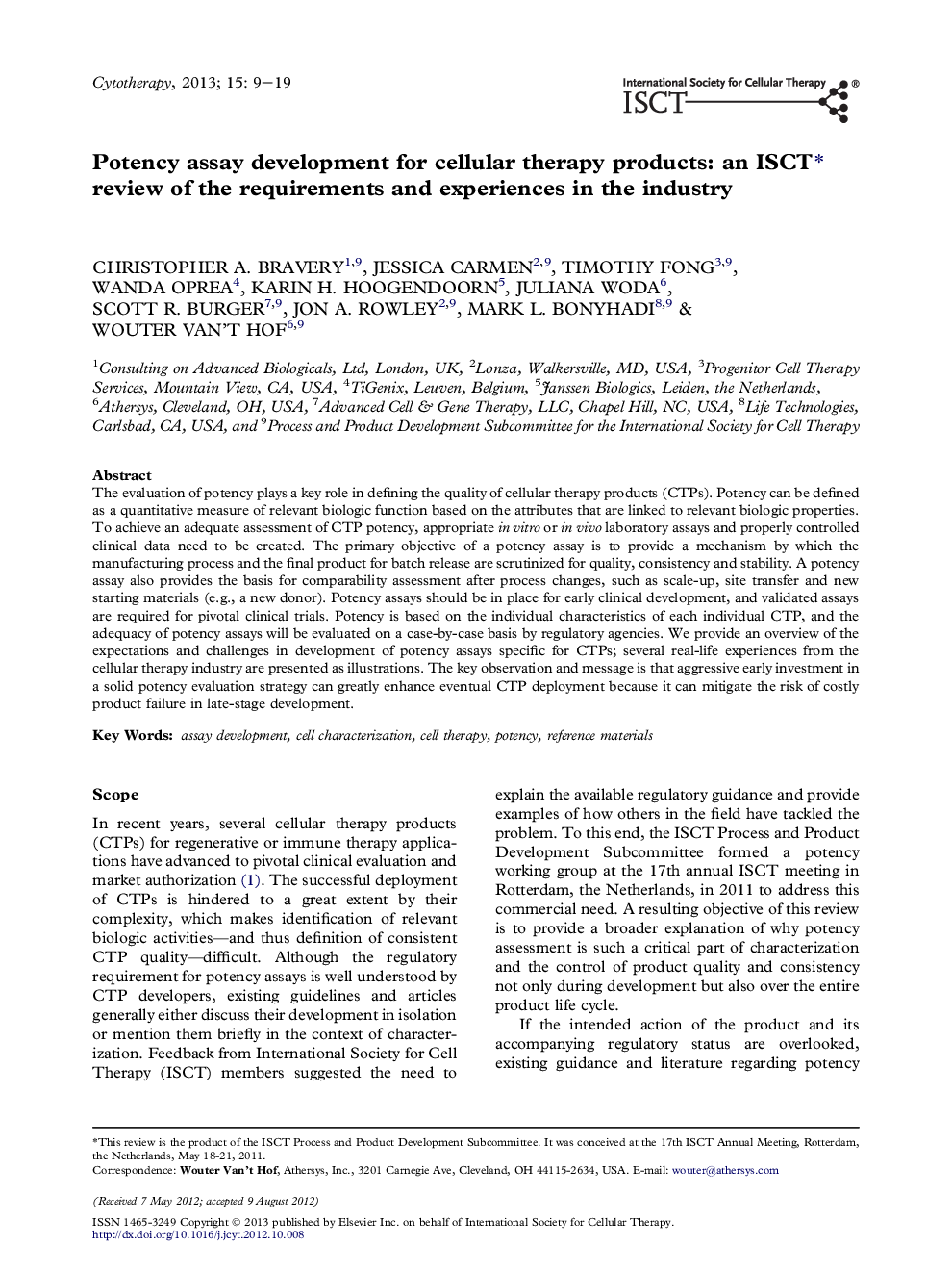| Article ID | Journal | Published Year | Pages | File Type |
|---|---|---|---|---|
| 10930768 | Cytotherapy | 2013 | 20 Pages |
Abstract
The evaluation of potency plays a key role in defining the quality of cellular therapy products (CTPs). Potency can be defined as a quantitative measure of relevant biologic function based on the attributes that are linked to relevant biologic properties. To achieve an adequate assessment of CTP potency, appropriate in vitro or in vivo laboratory assays and properly controlled clinical data need to be created. The primary objective of a potency assay is to provide a mechanism by which the manufacturing process and the final product for batch release are scrutinized for quality, consistency and stability. A potency assay also provides the basis for comparability assessment after process changes, such as scale-up, site transfer and new starting materials (e.g., a new donor). Potency assays should be in place for early clinical development, and validated assays are required for pivotal clinical trials. Potency is based on the individual characteristics of each individual CTP, and the adequacy of potency assays will be evaluated on a case-by-case basis by regulatory agencies. We provide an overview of the expectations and challenges in development of potency assays specific for CTPs; several real-life experiences from the cellular therapy industry are presented as illustrations. The key observation and message is that aggressive early investment in a solid potency evaluation strategy can greatly enhance eventual CTP deployment because it can mitigate the risk of costly product failure in late-stage development.
Related Topics
Life Sciences
Biochemistry, Genetics and Molecular Biology
Cell Biology
Authors
Christopher A. Bravery, Jessica Carmen, Timothy Fong, Wanda Oprea, Karin H. Hoogendoorn, Juliana Woda, Scott R. Burger, Jon A. Rowley, Mark L. Bonyhadi, Wouter Van't Hof,
